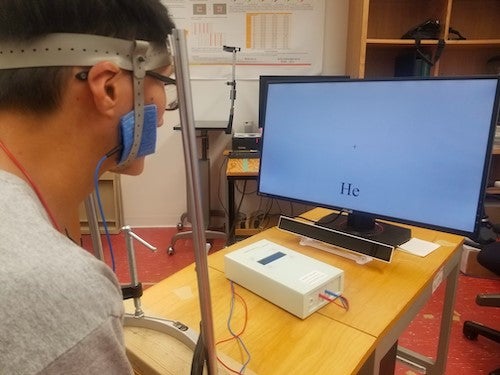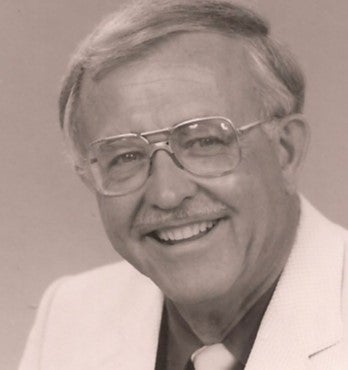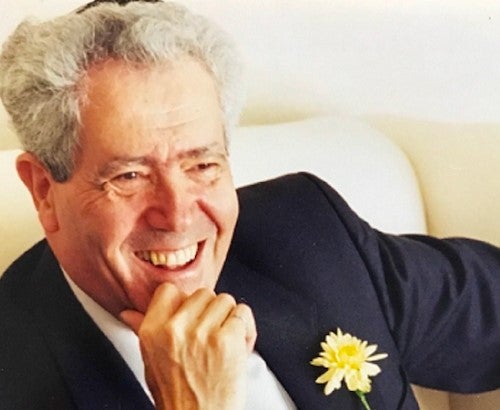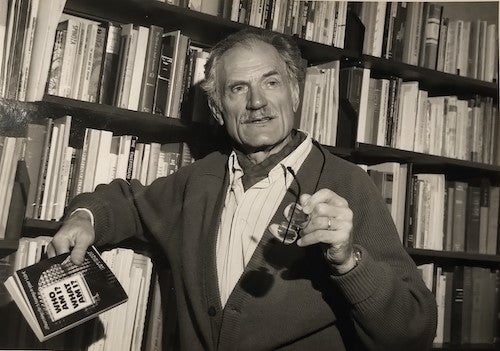Editor:
Brandon Sweet
University Communications
bulletin@uwaterloo.ca
2022 United Way Campaign draws to a close
A message from the United Way Core Committee.
As the holidays near, the United Way Core Committee is extending a big thank you to all those who supported this fall’s campus campaign. Whether you donated through e-pledge, purchased an item from your department fundraiser, or attended an event, thank you for another successful United Way campaign.
In continuing with our United Way tradition, our campus community gave generously and raised an incredible $230,000 in our first on-campus campaign since 2019. The United Way will distribute these funds to nearly 130 community organizations who collectively support about 60,000 people across the Region every six months.
This campaign video features photos from our many fundraising events, a thank you message from The Bridges – a United Way-funded organization, and a special acknowledgement from president and vice-chancellor, Vivek Goel.
On behalf of United Way Waterloo Region Communities, thank you again for making our community a better place.
Brain stimulation improves reading ability in macular degeneration patients

A new study is the first to show brain stimulation improves reading in patients with macular degeneration. Drug treatments only slow down the progression of the disease, but Waterloo scientists discovered they could train the brain to use the information it receives more efficiently.
Transcranial direct current stimulation (tDCS) is a non-invasive, painless brain stimulation treatment that uses direct electrical currents to stimulate specific parts of the brain. Researchers stimulated the visual cortex to help the brain to use the information it receives from the eye as efficiently as possible.
“This finding is exciting because this is the first study to demonstrate brain stimulation in patients with macular degeneration had a positive impact on an important real-world skill like reading,” said Andrew Silva, a postdoctoral fellow in Waterloo’s School of Optometry and Vision Science.
Patients with macular degeneration can develop blurred or no central vision, which is the part that allows a person to see fine details and high resolution. As a result, they rely on the low-resolution vision from their periphery, which makes tasks like reading very difficult.
Participants in the study were presented with 30 sentences, one word at a time. Then the 20-minute stimulation began while participants read 30 additional sentences word by word. Reading accuracy was evaluated immediately, five and 30 minutes later. Participants reading accuracy improved at all time intervals after stimulation.
A parallel study conducted at Hong Kong Polytechnic University in conjunction with Waterloo's Centre for Eye and Vision Research used the same methodology, except participants read one Chinese word instead of one English word. Surprisingly, the reading skill of participants in the Hong Kong study did not improve with the stimulation like those in the Canadian study.
The researchers suspect the differences between the studies highlight the intrinsic differences between the writing systems. For example, in English, words are comprised of multiple letters, but in Chinese, one word can be represented by a single character.
The letters within the English word crowd each other, making it difficult to correctly identify the word with peripheral vision. Brain stimulation is known to release this crowding effect. However, since the Hong Kong study presented one character at a time, there was no between-character crowding to release.
“We hypothesized that brain stimulation should improve peripheral reading by releasing the visual crowding induced by the side-by-side letters within a word. This worked out in the English-reading cohort, but not in the Chinese-character-reading cohort,” said Dr. Ben Thompson, a University Research Chair and professor in the School of Optometry and Vision Science.
Their research was published in the prestigious peer-reviewed journal Brain Stimulation.
Next, the team is assessing the impact of long-term tDCS stimulation on English reading skills, with an eye towards long-term reading improvements
“The fact that we demonstrated an acute effect is very exciting for the possibility of creating longer-lasting effects,” Silva said.
Please let us know if you are interested in participating in this study or another vision study.
ACM names Khuzaima Daudjee a Distinguished Member

Professor Daudjee conducts systems-oriented research and is a member of two research groups at the Cheriton School of Computer Science: Data Systems and Systems and Networking.
This article originally appeared on the Cheriton School of Computer Science website.
The Association for Computing Machinery has named Cheriton School of Computer Science Professor Khuzaima Daudjee a Distinguished Member for his outstanding scientific contributions to computing.
“On behalf of ACM and the Distinguished Member Committee, I am delighted that you are among the inductees honored with this designation and congratulate you on this well-deserved recognition,” wrote Geraldine Fitzpatrick, Chair of the ACM Distinguished Member Committee, in her letter to Professor Daudjee.
Under the ACM category of outstanding scientific contributions to computing, to which Professor Daudjee’s recognition belongs, 56 distinguished scientists were elected in 2022.
“Congratulations to Khuzaima on receiving this significant and well-deserved honour from ACM,” said Raouf Boutaba, Professor and Director of the Cheriton School of Computer Science. “He is among an esteemed group of researchers at the School of Computer Science, as well as nationally and internationally, who not only conduct transformative research but also train, mentor and inspire students to do the same.”
Professor Daudjee designs and develops systems that store and manage data. His research thrusts are in three main areas: large-scale and adaptive data management, storage, and provision of systems-level support for applications such as stream and graph processing. His work on large-scale and adaptive systems ranges from building systems such as ConfluxDB that scale through data replication and partitioning to those such as MorphoSys and Dendrite that generate on-the-fly, autonomous, physical designs and impart adaptivity to improve system performance by understanding workload data access patterns.
Professor Daudjee’s work on storage systems has resulted in designs that pave the way for self-driving data systems such as Proteus that can adapt their distributed design to different workloads, and ChronoCache that can predictively cache results for future queries. The EC-Store system shows how cloud-scale erasure-coded storage has the potential to outperform replicated storage. In streaming systems, understanding the progress and distribution of data streams has led to the design of an efficient scheduler called Klink built into the open-source Apache Flink streaming engine.
Professor Daudjee performed a first comprehensive study of graph processing systems. The Barrierless Asynchronous Parallel model that followed, built into the open-source Giraph system, splits graph computation into smaller logical steps allowing computation to progress while minimizing delays from stragglers. His work on the design of Hermes, a distributed graph system on top of the centralized Neo4j open-source system, looks at incoming workload requests and selects a data layout over multiple machines to minimize graph traversals. He also contributed to the HDRF graph partitioning technique that generates efficient graph data layouts and has become influential in the design and evaluation of graph partitioners.
A key focus of Professor Daudjee’s work is on building scalable and elastic systems, leading to evaluation and benchmarking on large clusters of machines. For example, his work on graph processing systems was deployed and benchmarked on more than 100 machines.
Professor Daudjee and his graduate and undergraduate students received the ACM SIGMOD Best Demonstration Award in 2020 and again in 2021, as well as a Best Paper Award at the ACM Symposium on Cloud Computing in 2015. He is most proud of the achievements of his students, one of whom has received a Governor General’s Gold Medal — the top university-wide award — and another who received a Facebook Emerging Scholar Award.
“I am grateful to all my wonderful students, collaborators and mentors,” says Professor Daudjee. “They have provided an environment driven by intellectual curiosity and insight that is conducive to developing novel system solutions to meet research challenges.”
He is the eleventh faculty member at the Cheriton School of Computer Science to be recognized as a Distinguished Member by ACM, following Professors Florian Kerschbaum (2019), Ian Goldberg (2017), Kenneth Salem (2017), Jo Atlee (2016), Charles Clarke (2015), Ihab Ilyas (2014), Mark Giesbrecht (2013), Don Cowan (2010), Anna Lubiw (2009), and Jeffrey Shallit (2008).
The Association for Computing Machinery is the world’s largest and most well-known scientific and educational computing society. To be recognized as an ACM Distinguished Member, awardees must have achieved a significant research accomplishment or made a substantial impact in computing, computer science, or information technology.
Remembering retirees
Human Resources has reported the following retirees have died in 2022. The Daily Bulletin has marked the passings of retirees in 2022's first quarter in July on two previous occasions this year.
April 2022

Dr. Francis Dullien
- Dr. Francis Dullien, who joined the University in July 1966 and retired in July 1994 as a Professor in Chemical Engineering, died on April 14, 2022.
June 2022

Dr. Thomas Fahidy.
- Dr. Thomas Fahidy, who began working at Waterloo in December 1964 and retired in December 2002 as faculty member in Chemical Engineering, died June 10, 2022.
- Peter Jordan, who started at the University in October 1984 and retired as Supervisor, Cleaning Services in Housing and Residences in September 2015, died June 11, 2022.
- Ramma Kamra, who retired from the University in February 1997, died June 19, 2022
- Ruth Mayr, who started working at the University in October 1979 and retired as Food Services Manager in May 1992, died June 27, 2022.
July 2022

Professor Calvin Redekop in 1988.
- Professor Calvin Redekop, who joined Conrad Grebel in August 1979 and retired in July 1990, died July 20, 2022.
- Joyce Wendland, who joined the University in May 1975 and retired in March 1996, died July 28, 2022.
August 2022
- David Brock, who started working at Waterloo in July 1967 and retired in October 2004 as Equipment Coordinator/Scanner in Graphics, died August 2, 2022
- Kaethe Wiebe, who began working at the University in May 1978 and retired in April 1992, died August 3, 2022
- Virginia Puim, who began working at the University in September 1969 and retired in March 1999 as a Food Services Assistant in Food Services, died on August 14, 2022
- Duncan M Murie, who joined Waterloo in August 1991 and retired as Gift Processing Assistant in ODAA – Support Services and Systems, died on August 17, 2022
- Marjorie Bruce, who began her career at Waterloo in April 1980 and retired in November 1990, died on August 22, 2022
- Lynne M Wight, who started at Waterloo in April 1994 and retired as Administrative Officer in the Graduate Studies Office in March 2019, died on August 31, 2022
- Rene Mayorga, who joined the University in January 1986 and retired as Research Professor in Systems Design Engineering in November 2013 (though he stopped working directly for Waterloo in November 1998) died on August 31, 2022
September 2022
- Helen Boutilier, who joined the University in October 1978 and retired in January 2002 as a Housekeeper in Village I, died on September 20, 2022
- Maria Gomes, who started working at Waterloo in October 1992 and retired in January 2018 as Custodian in Plant Operations, died on September 13, 2022
- Robert Grant, who joined the University in November 1968 and retired in March 1996, died on September 25, 2022.
October 2022
- Dr. Scott Lawson, who joined the University in 2000 as an adjunct associate professor in Mechanical and Mechatronics Engineering, died on October 2, 2022.
Link of the day
35 years ago: *batteries not included
When and Where to get support
Students can visit the Student Success Office online for supports including academic development, international student resources, immigration consulting, leadership development, exchange and study abroad, and opportunities to get involved.
Instructors looking for targeted support for developing online components for blended learning courses, transitioning remote to fully online courses, revising current online courses, and more please visit Agile Development | Centre for Extended Learning | University of Waterloo (uwaterloo.ca).
Faculty, staff, post-doc and graduate student instructors can find upcoming teaching and learning workshops, self-directed modules and recordings of previous events on Centre for Teaching Excellence Workshops and Events page.
Instructors can access the EdTech Hub to find support on Waterloo’s centrally supported EdTech tools. The Hub is supported by members of IST’s Instructional Technologies and Media Services, Centre for Teaching Excellence, Centre for Extended Learning and subject matter experts from other campus areas.
Supports are available for employees returning to campus. Visit IST’s Hybrid Work and Technology guidelines and workplace protocols to assist with the transition.
Students with permanent, temporary and suspected disabilities and disabling conditions (medical conditions, injuries, or trauma from discrimination, violence, or oppression) can register with AccessAbility Services for academic accommodations (classroom accommodations, testing accommodations, milestone accommodations).
Instructors can visit AccessAbility Services' Faculty and Staff web page for information about the Instructor/Faculty role in the accommodation process. Instructors/Faculty members are legally required to accommodate students with disabilities. AccessAbility Services (AAS) is here to help you understand your obligations, and to offer services and resources to help you facilitate accommodations.
The Writing and Communication Centre has in-person and virtual services to support grad and undergrad students, postdocs and faculty with any writing or communication project. Services include one-to-one appointments, drop-ins at Dana Porter Library, online workshops, writing groups, English conversation practice, and custom in-class workshops.
Research Ethics: Find yourself with an ethical question, unsure if your work requires an ethics review, or need advice about putting together a research ethics application? Reach out to one of our friendly staff by booking a consultation or email us with your questions.
Co-op students can get help finding a job and find supports to successfully work remotely, develop new skills, access wellness and career information, and contact a co-op or career advisor.
The Centre for Career Action (CCA) has services and programs to support undergrads, grad students, postdocs, alumni, and employees in figuring out what they value, what they’re good at, and how to access meaningful work, co-op, volunteer, or graduate/professional school opportunities. Questions about CCA's services? Live chat, call 519-888-4047, or stop by our front desk in the Tatham Centre 8:30 a.m. to 4:30 p.m., Monday to Friday.
Drop-in to in-person Warrior Study Halls on Thursdays from 5:00 p.m. to 6:30 p.m. in DC and DP. Join a Peer Success Coach to set goals and work independently or in groups each week.
Renison's English Language Institute continues to offer virtual events and workshops to help students practice their English language skills.
If you feel overwhelmed or anxious and need to talk to somebody, please contact the University’s Campus Wellness services, either Health Services or Counselling Services. You can also contact the University's Centre for Mental Health Research and Treatment. Good2Talk is a post-secondary student helpline available to all students.
The Library is here to help, both in person and online. Our spaces are open for access to book stacks, study space, computers and printers, and the IST Help Desk. For in-depth support, meet one-to-one with Librarians, Special Collections & Archives and Geospatial Centre staff. Access our resources online for anywhere, anytime learning and research. Full details on current services and hours are available on the Library’s COVID-19 Update webpage.
The Faculty Association of the University of Waterloo (FAUW) continues to advocate for its members. Check out the FAUW blog for more information.
The University of Waterloo Staff Association (UWSA) continues to advocate for its members. Check out the UWSA blog for more information.
The Office of Equity, Diversity, Inclusion & Anti-Racism (EDI-R) works with students, faculty and staff across campus to advance equity and Anti-racism through evidence-based policies, practices and programs. If you have a concern related to Anti-racism and/or equity, please complete our intake form.
The Sexual Violence Prevention and Response Office (SVPRO) supports all members of the University of Waterloo campus community who have experienced, or been impacted, by sexual violence. This includes all students, staff, faculty and visitors on the main campus, the satellite campuses, and at the affiliated and federated Waterloo Institutes and Colleges. For support, email: svpro@uwaterloo.ca or visit the SVPRO website.
The Office of Indigenous Relations is a central hub that provides guidance, support, and resources to all Indigenous and non-Indigenous campus community members and oversees the University's Indigenization strategy.
The Waterloo Indigenous Student Centre, based at United College, provides support and resources for Indigenous students, and educational outreach programs for the broader community, including lectures, and events.
WUSA supports for students:
Peer support - MATES, Glow Centre, RAISE, Women’s Centre - Click on one of the links to book an appointment either in person or online for the term.
Food Support Service food hampers are currently available from the Turnkey Desk 24/7 in the Student Life Centre. Drop-off locations are also open again in SLC, DC, DP, SCH, and all residences.
Co-op Connection all available online.
Centre for Academic Policy Support - CAPS is here to assist Waterloo undergraduates throughout their experience in navigating academic policy in the instances of filing petitions, grievances and appeals. Please contact them at caps@wusa.ca.
WUSA Student Legal Protection Program - Seeking legal counsel can be intimidating, especially if it’s your first time facing a legal issue. The legal assistance helpline provides quick access to legal advice in any area of law, including criminal. Just call 1-833-202-4571.
Empower Me is a confidential mental health and wellness service that connects students with qualified counsellors 24/7. They can be reached at 1-833-628-5589.
GSA-UW supports for graduate students:
The Graduate Student Association (GSA-UW) supports students’ academic and social experience and promotes their well-being.
Advising and Support - The GSA advises graduate students experiencing challenges and can help with navigating university policies & filing a grievance, appeal, or petition.
Mental Health covered by the Health Plan - The GSA Health Plan now has an 80 per cent coverage rate (up to $800/year) for Mental Health Practitioners. Your plan includes coverage for psychologists, registered social workers, psychotherapists, and clinical counselors.
Dental Care - The GSA Dental Plan covers 60 to 70 per cent of your dental costs and by visiting dental professionals who are members of the Studentcare Networks, you can receive an additional 20 to 30 per cent coverage.
Student Legal Protection Program - Your GSA fees give you access to unlimited legal advice, accessible via a toll-free helpline: +1-833-202-4571. This advice covers topics including housing disputes, employment disputes, and disputes with an academic institution.
The Graduate House: Open Monday to Tuesday 11:30 a.m. to 7:00 p.m. and Wednesday to Friday 11:30 a.m. to 9:00 p.m. We’re open to all students, faculty, staff, and community members. The Graduate House is a community space run by the GSA-UW. We’re adding new items to the menu. Graduate students who paid their fees can get discounts and free coffee.
When and Where
Warriors vs. Laurier Blood Donation Battle. Join our “Waterloo Warriors” team on the Blood.ca website or app. #ItsInYouToGive
Warriors Game Day Tickets and Season Passes, on sale now. Cheer on your Warriors W/M Basketball, Football W/M Hockey and W/M Volleyball teams at home during the 2022-23 season. Purchase today.
Free Staff Workouts, Tuesdays and Thursdays until December 22, 12:15 p.m. to 12:45 p.m. Bootcamp-style classes in the CIF Field House and PAC. Open to all staff and supported by the Staff Excellence Fund. Find out more/register now.
Flu shots available at Student Health Pharmacy, Monday to Friday, 9:00 a.m. to 4:00 p.m., dial ext. 33784 for info.
Fall 2022 examination period, Friday, December 9 to Friday, December 23.
Co-operative work term ends, Friday, December 23.
University holiday closure, Saturday, December 24 to Monday, January 2, 2023, Most University operations and buildings closed.
Deadline to register for Centre for Extended Learning (CEL) "Getting Ready to Facilitate Online Courses: TA Training – Winter 2023" course, Monday, January 30, 2023.
